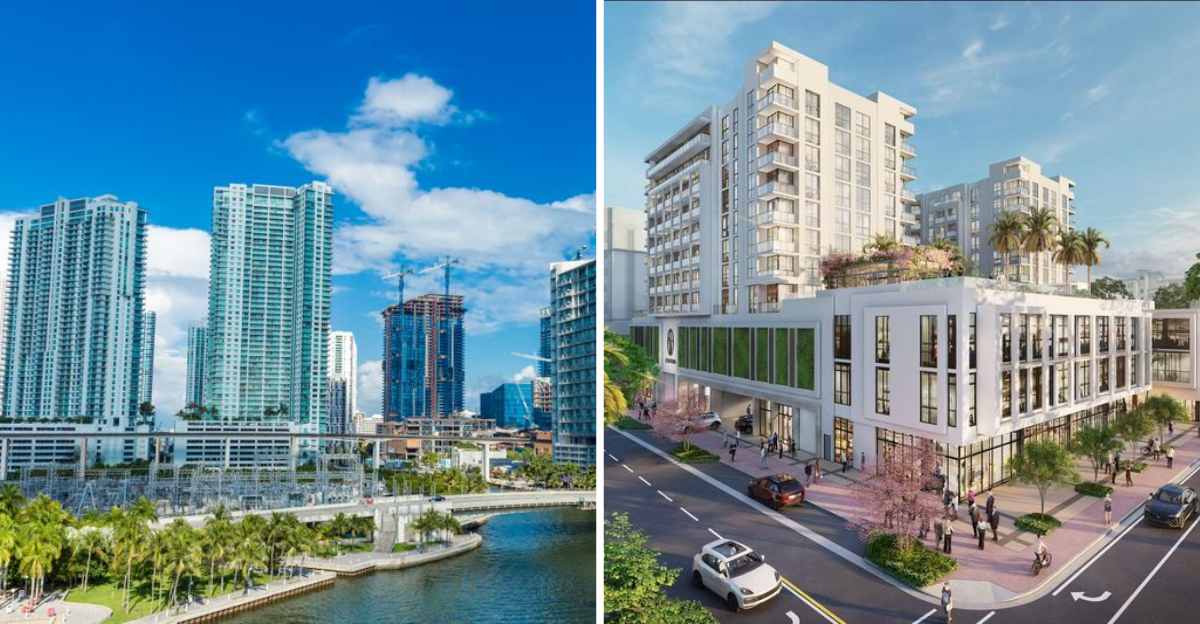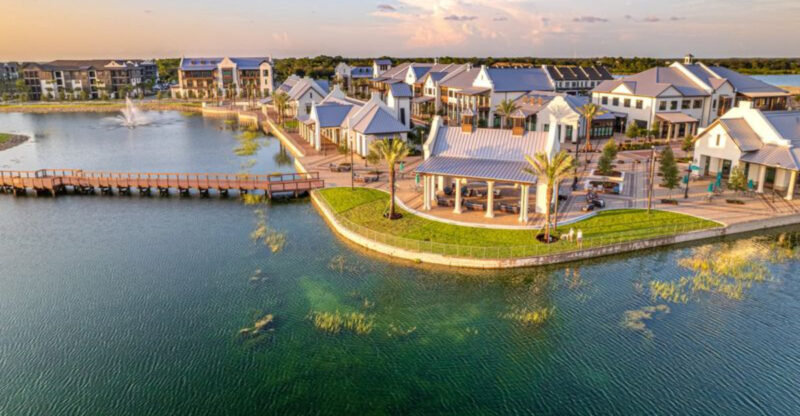7 Miami, Florida Condos Expected To See Price Declines By 2026

Miami’s shimmering towers of glass and steel have defined the city’s image for decades, promising ocean views, high-end amenities, and a lifestyle wrapped in luxury. Yet beneath the sparkle, cracks are beginning to show in the condo market.
Analysts point to oversupply, spiraling maintenance costs, and mounting environmental risks as forces reshaping demand.
What once felt like an unstoppable climb in value is showing signs of slowing, and some properties stand more vulnerable than others as the city’s real estate cycle shifts toward correction.
1. Older Waterfront Buildings With Rising Insurance Costs
Aging waterfront properties built in the 1980s and 1990s are facing financial pressure from skyrocketing insurance premiums.
Insurance companies have become increasingly cautious about older structures. Many buildings now require special assessments reaching six figures per unit just to meet new safety requirements, driving owners to sell at reduced prices.
2. Pre-2000 Constructions Struggling With Maintenance Assessments
Vintage Miami condos built before stricter building codes now face expensive structural recertifications. Some buildings require complete plumbing, electrical, and facade overhauls costing millions.
When spread across fewer units than modern high-rises, these expenses create financial strain for owners who purchased at premium prices, potentially forcing discounted sales as carrying costs become unsustainable.
3. Short-Term Rental Dependent Condos Hit By Regulation Shifts
Buildings popular with investors for Airbnb potential face uncertainty as Miami-Dade County tightens short-term rental regulations. Many investors purchased units specifically for vacation rental income, paying premium prices based on projected returns.
As cities implement stricter rules and higher fees for short-term rentals, these investment properties lose their financial appeal, potentially triggering a sell-off.
4. Coastal Properties At Higher Risk Of Flooding And Sea-Level Rise
Beachfront properties facing increasingly frequent flooding events are seeing insurance costs multiply exponentially. What once seemed like occasional nuisance flooding has become a regular occurrence during king tides.
Forward-thinking buyers are growing hesitant about low-elevation properties, while existing owners face mounting costs for flood mitigation, creating downward pressure on previously premium waterfront locations.
5. Smaller Units In Dense Downtown Towers Losing Appeal
Micro-units and studios once marketed to young professionals are falling out of favor as remote work reshapes housing preferences. Buyers now prioritize extra space for home offices over downtown convenience.
The compact footprints that seemed innovative during the urban renaissance appear increasingly cramped and impractical, leading to softening demand and downward price pressure in this specific segment.
6. Investor-Owned Condos Vulnerable To Shifting Market Sentiment
Buildings with high percentages of non-resident owners face unique challenges as investment priorities change. When market sentiment shifts, investor-owners typically react more quickly than primary residents, sometimes accepting lower prices to exit positions.
Areas where 60% or more units are investment properties could see accelerated price declines if economic conditions prompt investors to reallocate their portfolios.
7. Luxury High-Rise Condos Facing Oversupply
The ultra-luxury segment has experienced a building boom that’s finally catching up with demand. Developers rushed to capitalize on wealthy buyers, creating more inventory than the market can absorb.
With dozens of similar high-end towers competing for the same pool of affluent buyers, price adjustments seem inevitable as sellers compete for attention.






